This Chance to Go Paid for Less is Almost Gone… ⚾️👋
January 13, 1972: Bernice Gera Wins the Fight to Umpire
On this day in 1972, Bernice Gera made history by winning a lawsuit that forced professional baseball to give her a shot as its first female umpire.
Gera, who had graduated from umpire school in 1967, had been repeatedly turned away because of her gender. But she didn’t back down. After five long years of legal battles, the New York Court of Appeals ruled in her favor, clearing the way for her to step onto the field.
That moment came on June 24, 1972, when Gera umpired the first game of a doubleheader in the New York-Penn League. It wasn’t an easy debut—she made several controversial calls, including ejecting the Auburn Phillies’ manager. But the toughest challenge wasn’t the calls; it was the hostility from her male colleagues. After just one game, Gera resigned, later saying, “I could beat them in the courts, but I can’t beat them on the field.”
Her umpiring career may have been short, but Gera’s fight changed baseball forever. She paved the way for future women to break into officiating roles.
January 14, 1954: Joe DiMaggio and Marilyn Monroe Tie the Knot

On this day in 1954, two American icons—Joe DiMaggio and Marilyn Monroe—became husband and wife in a civil ceremony at San Francisco City Hall.
DiMaggio, the legendary New York Yankees center fielder, and Monroe, Hollywood’s brightest star, had been dating for two years before deciding to wed. Their union was highly anticipated, capturing the imagination of fans nationwide. 
The ceremony was intentionally low-key, but word leaked, and a crowd of reporters and fans gathered outside. Monroe wore a modest dark brown outfit, while DiMaggio donned a blue suit. Despite the media frenzy, the couple managed to keep the event intimate, with only close friends and family in attendance. 
Their marriage, however, was tumultuous and short-lived.
DiMaggio’s traditional values clashed with Monroe’s rising fame and sensual public image. Tensions peaked during the filming of Monroe’s iconic scene in “The Seven Year Itch,” where her skirt billows over a subway grate—a moment that reportedly incited DiMaggio’s jealousy.
The couple divorced just nine months later, but DiMaggio’s love for Monroe endured. He famously had roses delivered to her grave three times a week for 20 years following her death in 1962. 
For a glimpse into their wedding day, here’s a brief video capturing the moments after their ceremony:
January 15, 1934: Babe Ruth Takes a Pay Cut to Stay with the Yankees
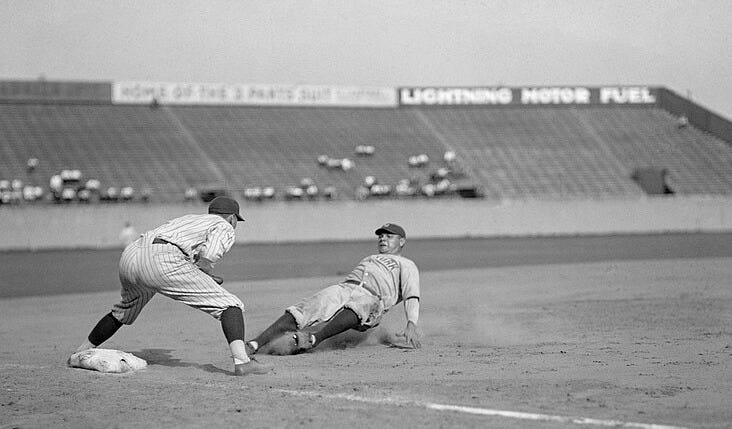
Babe Ruth, baseball’s biggest star, signed what would be his final contract with the New York Yankees.
The deal was worth $35,000—a significant pay cut of $17,000 less than his previous salary. Even with the reduction, Ruth remained the highest-paid player in the league, but the times were changing, and so was his career.
Ruth’s performance had started to decline by this point.
In the 1934 season, he hit .288 with 22 home runs—still impressive by most standards, but far from the dominance he once displayed.
The Yankees were also feeling the economic crunch of the Great Depression, which undoubtedly factored into the pay cut.
Despite the challenges, Ruth still delivered some magic that season, including his 700th career home run on July 13.
This contract marked the end of Ruth’s legendary run in pinstripes. After the 1934 season, the Yankees released him, and he briefly joined the Boston Braves before retiring in 1935.
January 16, 1964: A.L. Owners Block Finley’s Plan to Move the A’s to Louisville

We covered this event in our episode 9 MLB Teams That ALMOST Existed (And What Stopped Them) if you’d like to learn more.
On this day in 1964, Charlie Finley, the controversial owner of the Kansas City Athletics, faced a firm rejection from American League owners. Finley had proposed moving the struggling franchise to Louisville, Kentucky, where he had signed a two-year lease to play at Fairgrounds Stadium.
The A.L. owners weren’t impressed. In a 9-1 vote, they shut down the move and issued an ultimatum: sign a new lease in Kansas City or lose the team entirely.
This wasn’t Finley’s first attempt at relocating the A’s—or his last. Frustrated with low attendance and the team’s lease at Kansas City’s Municipal Stadium, he had also explored moving to Dallas-Fort Worth and even tiny Peculiar, Missouri.
Ultimately, Finley agreed to a four-year extension to keep the team in Kansas City, but it was a rocky relationship. Four years later, Finley finally got his wish when the Athletics moved to Oakland in 1968.
January 17, 1960: 3-Time All-Star Chili Davis Is Born
On this day in 1960, Charles Theodore “Chili” Davis entered the world in Kingston, Jamaica. Davis would later move to Los Angeles at age 10, where he picked up the game of baseball and began honing the skills that would make him one of the best switch-hitters of his era.
Davis made his MLB debut with the San Francisco Giants in 1981, kicking off a remarkable 19-year career. Along the way, he earned three All-Star selections (1984, 1986, 1994) and was part of three World Series championship teams: with the Twins in 1991 and the Yankees in 1998 and 1999.
His career numbers speak for themselves—a .274 batting average, 350 home runs, and 1,372 RBIs. And as the first Jamaican-born player in MLB history, Davis paved the way for other international stars.
After retiring, Davis didn’t leave the game behind. He became a hitting coach for teams like the A’s, Red Sox, Cubs, and Mets, sharing his wealth of knowledge with the next generation.
🚨 SO MANY of our listeners find the show through referrals. Would you take a moment to share Rounders with a baseball fan in your life? 🤝
January 18, 1973: Orlando Cepeda Becomes Baseball’s First-Signed Designated Hitter
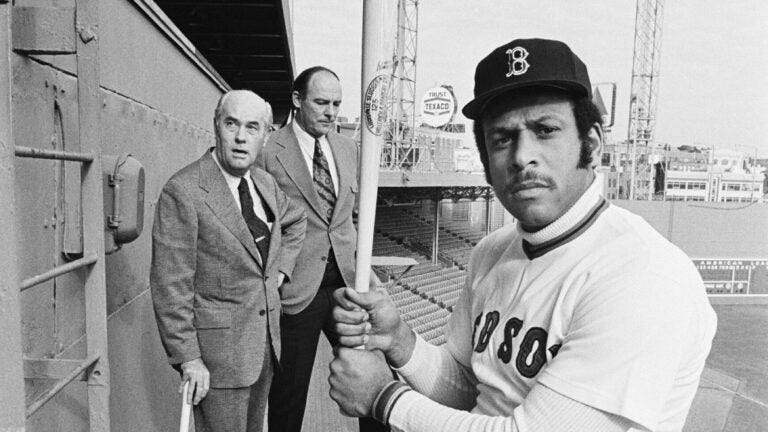
On this day in 1973, the Boston Red Sox signed veteran slugger Orlando Cepeda, making him the first player in MLB history specifically signed to fill the newly created designated hitter role.
The American League had just adopted the DH rule to boost offense, and the Red Sox saw a golden opportunity in Cepeda—a proven bat with years of big-league experience.
Cepeda, a seven-time All-Star and former NL MVP, was near the end of his career and dealing with knee issues that limited his ability to play in the field. The DH role gave him a second chance to shine.
In 1973, Cepeda appeared in 142 games, all as a DH, and put up strong numbers. That season he posted:
A .289 batting average
20 home runs
86 RBIs.
His efforts didn’t go unnoticed—he won the first-ever Outstanding Designated Hitter Award that season.
This move by the Red Sox not only extended Cepeda’s career but also showed just how impactful the DH position could be. It was a bold experiment at the time, but one that paid off and paved the way for generations of hitters to carve out careers focusing solely on what they do best: crushing baseballs.
January 19, 1934: Commissioner Landis Upholds ‘Shoeless’ Joe Jackson’s Lifetime Ban
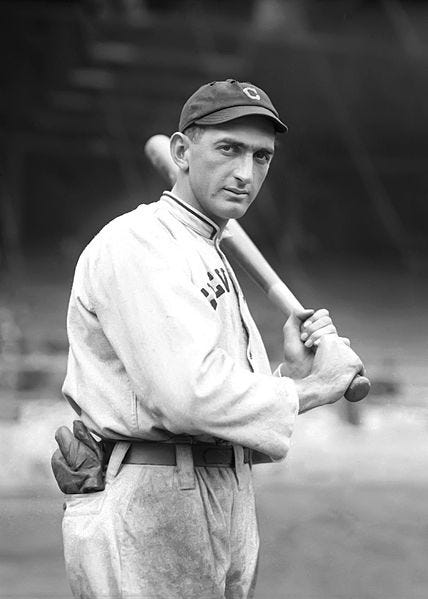

On this day in 1934, MLB Commissioner Kenesaw Mountain Landis denied “Shoeless” Joe Jackson’s appeal for reinstatement, effectively ending any hopes Jackson had of returning to professional baseball.
Jackson was one of eight Chicago White Sox players banned for life following the infamous 1919 Black Sox Scandal, in which members of the team were accused of conspiring with gamblers to intentionally lose the World Series against the Cincinnati Reds.
The scandal rocked the baseball world, shaking fans’ trust in the game.
While Jackson maintained that he never actively participated in throwing games, he did admit to knowing about the fix. His .375 batting average and flawless fielding during the Series only added to the controversy. Landis, however, remained unwavering, prioritizing the league’s integrity over any individual player’s redemption.
Efforts to clear Jackson’s name have persisted over the decades. His supporters argue that he was exploited by team owners and gamblers, noting that he was illiterate and may not have fully understood the implications of what he signed.
Petitions and advocacy campaigns continue to call for his reinstatement, though MLB has never reconsidered the decision.


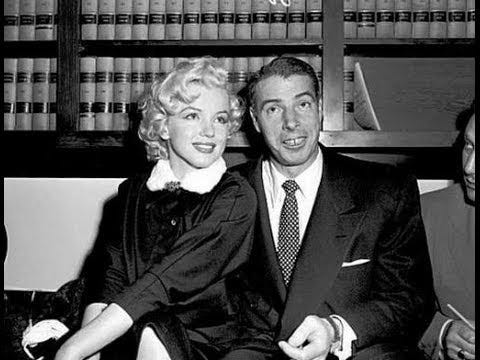







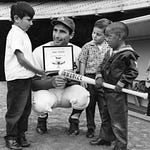

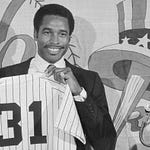


Share this post